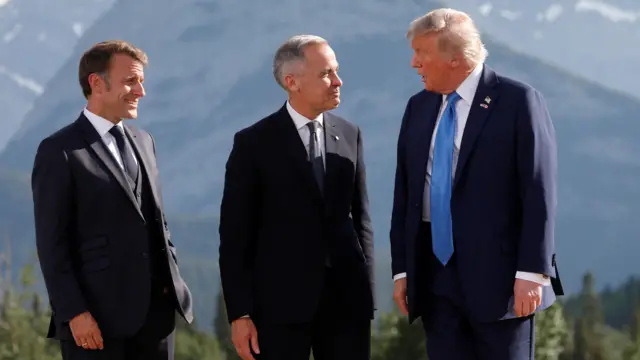Iran-Israel escalation derails Trump's G7 summitpublished at 04:33 BST 17 June
US President Donald Trump has cut short his visit to the Group of Seven (G7) summit in Canada, as he will soon fly back to Washington to handle the ongoing conflicts between Israel and Iran.
Blasts are heard in Tehran, shortly after Trump has told "everyone" to evacuate Iran's capital immediately.
Sirens in Israel have sounded a number of times in the past few hours, without any significant damage reported yet.
Trump has asked his National Security Council to convene - though US officials insist the US is not joining the Israeli offensive on Iran.
We'll shortly be closing this live coverage but you can keep up-to-date on this page.





